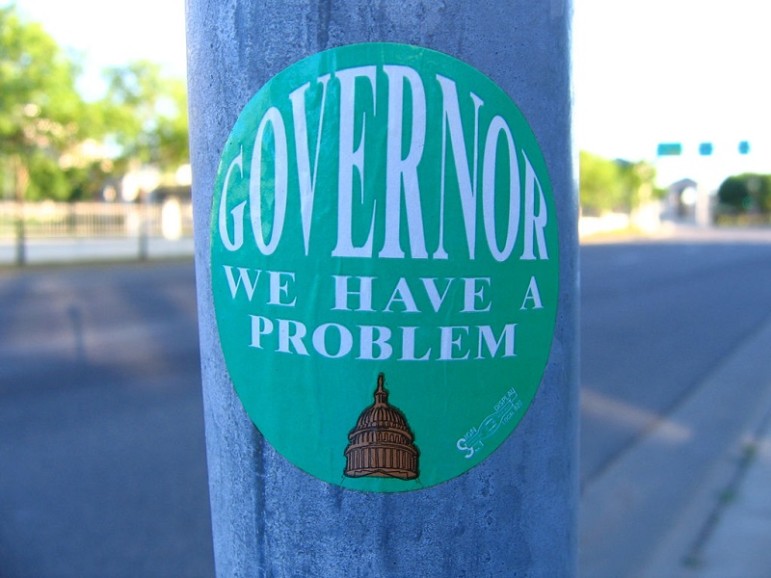
February 2, 2016; Crain’s Chicago Business and Daily Herald
Seven months and counting. Illinois continues on without a state budget in sight as its Republican governor battles with Democratic legislative majorities over political philosophies. And while this struggle winds on, great harm is being done to the state’s social service and education systems—harm that may be too big to be repaired just by agreeing on a balanced budget.
- Last month, according to the Daily Herald, Lutheran Social Services, the state’s largest social service provider, “announced it closed more than 30 programs throughout the state and eliminated 750 jobs on Friday. The programs have been operating without payment from the state at a cost to the agency of close to $6.5 million. […] It’s unlikely these programs will be resurrected when or if the state passes a budget. […] Lutheran Social Services has relied on a line of credit and other resources from its foundation to compensate for the lack of state funding.”
- “Six drug and alcohol residential rehabilitation programs offered by the agency in Elgin and Chicago will close.”
- “Mental health counseling programs offered in Des Plaines, Elmhurst, Downers Grove, Prospect Heights, Wheaton and Villa Park are being shut down as well. A ‘respite service’ program for veterans and their families based in Streamwood is also closing, according to a news release issued by agency officials.”
- A state funded program designed to break the school-prison pipeline, Redeploy Illinois, is shutting down service locations across the state.
- According to a report in the Wall Street Journal, “More than 1,000 students failed to return for the second semester as their schools stopped picking up the tab for the $373 million Monetary Award Program, said Randy Dunn, president of the Southern Illinois University system. The program normally provides grants of up to nearly $5,000 to some 128,000 students with mean family incomes of about $30,000, said Lynne Baker, spokeswoman for the Illinois Student Assistance Commission, which administers the program. But with no state budget in place since summer, the program’s funding has”
- The Southeastern Illinois Agency on Aging posts on its Facebook page that “Since October we have seen four senior centers close and many other organizations reduce the days they are open. In a network survey about the budget impasse conducted in the fall it was estimated that if there was no budget by the end of February 84,500 seniors will be without services.”
Day after day, there are more and more signs of lost opportunity and critical human needs that will cannot be met. But the harm that can be seen is just the tip of the iceberg that the ongoing impasse is causing.
Sign up for our free newsletters
Subscribe to NPQ's newsletters to have our top stories delivered directly to your inbox.
By signing up, you agree to our privacy policy and terms of use, and to receive messages from NPQ and our partners.
Not all state spending has been halted because of the lack of a budget. At the beginning of this fiscal year, the governor and legislative leaders agreed to continue to fund public schools at the prior year’s levels. State law allowed continued funding for many “essential services,” and several court orders enforcing consent decrees maintained funding for some other state services. Because the state legislature allowed a temporary income tax increase to lapse, even this limited spending exceeds current revenues, and billions of dollars continue to add to a stack of unpaid bills, further weakening the state’s credit rating and making it even more difficult to achieve a long term financial plan. Christine Radogno, the State Senate’s Republican minority leader, in a speech to the Chicago City Club last month cited “a three-year fiscal projection released by the Governor’s Office of Management and Budget showing Illinois has a $5 billion budget hole and $9 billion bill backlog for the current fiscal year, FY2016. Radogno said she couldn’t rule out the possibility that the state will continue to operate with an ‘autopilot’ budget until June 30, 2020, when the bill backlog is projected to skyrocket to $25 billion.”
The impact of the stalemate is not hard to see. Clearly, the impasse is hurting individuals young and old. It threatens the existence of social service agencies throughout the state. And the cost of fixing the problems is getting higher and higher. So why can’t Illinois’s leaders reach a compromise? According to State Senator Daniel Biss, this is not an argument over how to create a balanced budget. In a recent op-ed in Crain’s Chicago Business, he wrote:
The underlying dispute is about economic philosophy and values between a Republican governor and a Democratic-controlled Legislature. Rauner and his supporters believe in a theory of economic growth that focuses on competitiveness, which to them means decreasing costs for businesses and decreasing wages and benefits for workers. Democrats believe in a theory of economic growth that invests in people and infrastructure while relying on rising wages to build a thriving middle class that then drives further consumption and growth.
The citizens of Illinois are waiting to see if there is a way to resolve this clash of philosophies that doesn’t leave many hurt, wounded, or left behind.—Martin Levine














